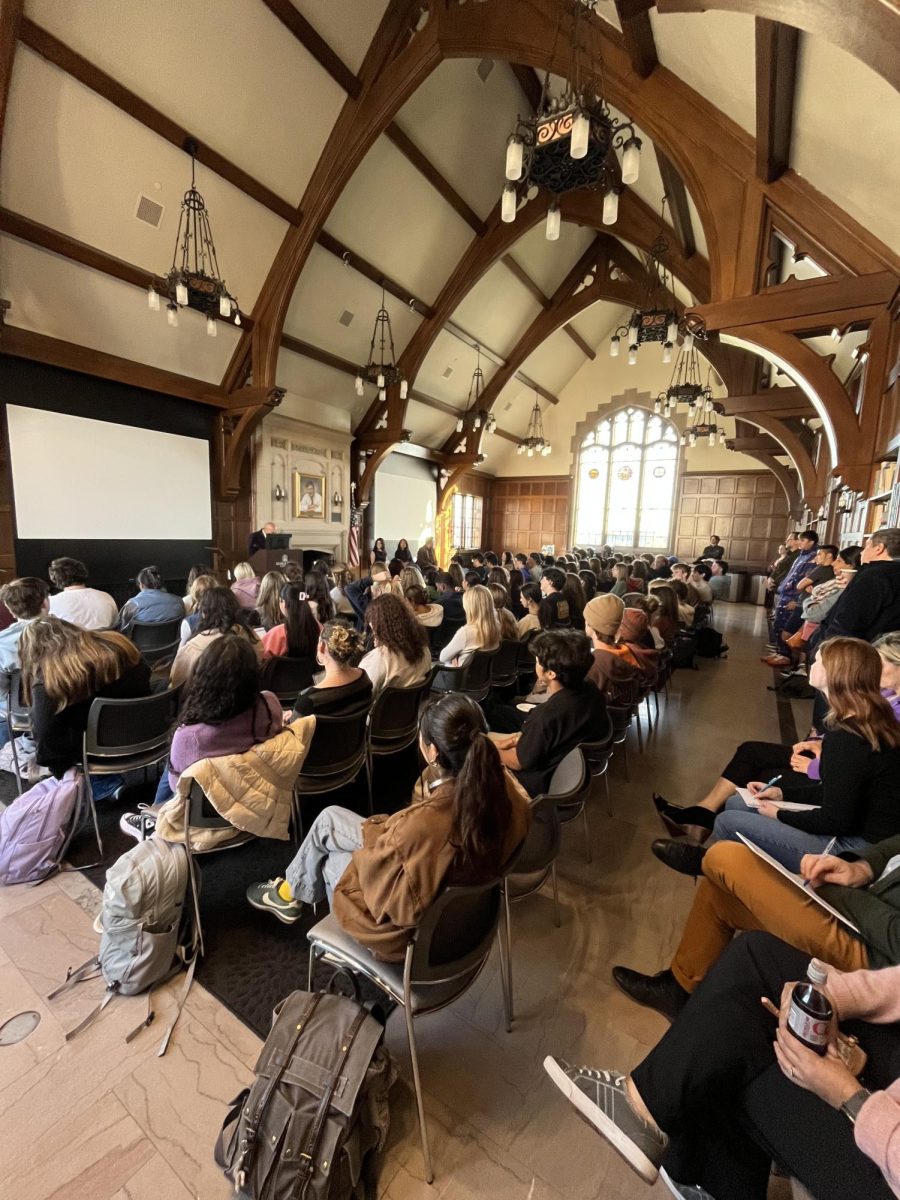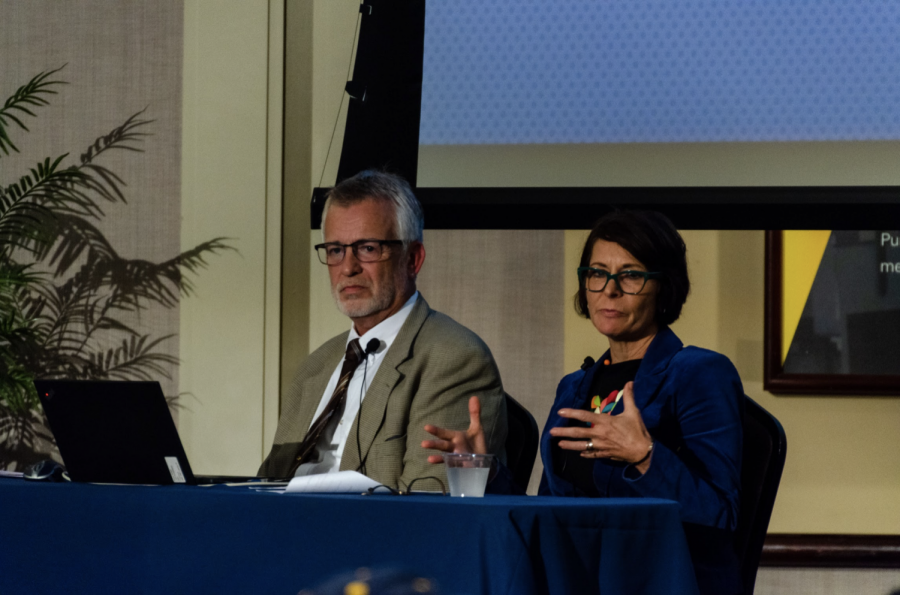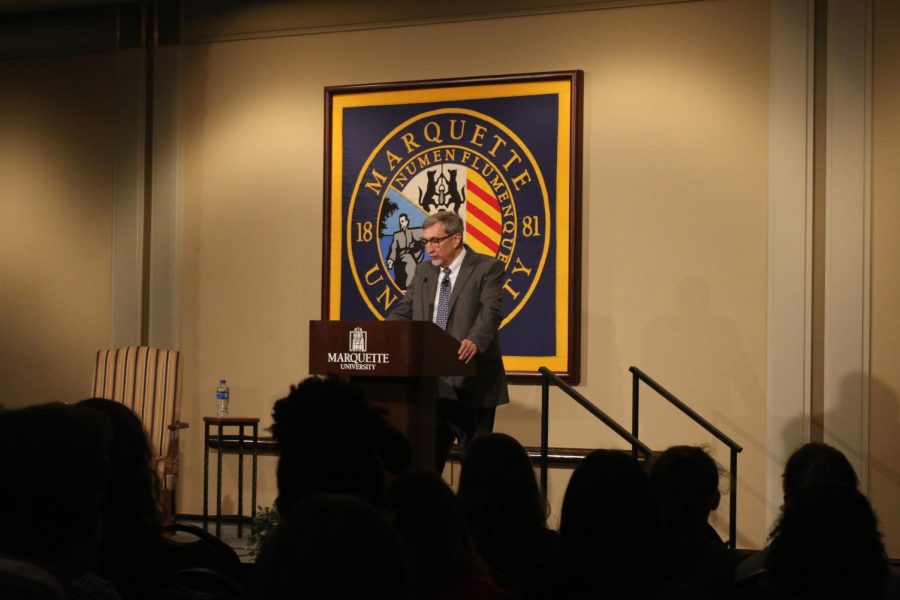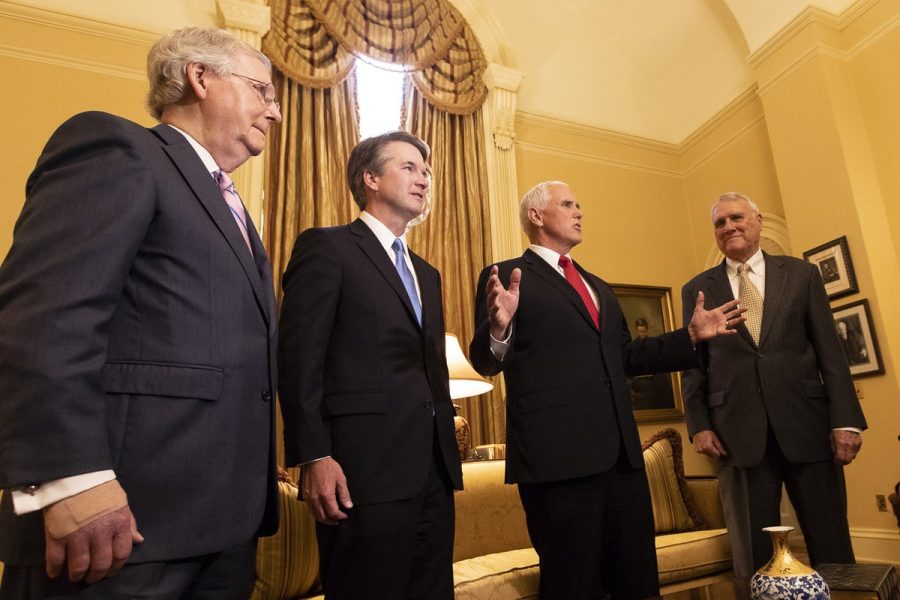Award-winning journalists Andrew Ba Tran, Claire Healy and Nicole Dungca were featured speakers at Marquette’s annual Burleigh Media Ethics Lecture on Wednesday, Oct. 23 in Sensenbrenner 304. An audience of over 100 students and faculty attended.
The Burleigh Media Ethics Lecture is an annual lecture hosted by the O’Brien Fellowship that brings in accomplished journalists from around the country to talk about their work and the importance of ethics in journalism. The event is open to anyone.
“This lecture honors William R. Burleigh who was a 1957 Marquette Journalism graduate,” Sarah Feldner, dean of the College of Communication, said. “In his work, he gave a lot of lectures, and he always talked about the importance of ethics.”
The journalists presented their work called ‘The Collection,” which is made up of the long-form article “Revealing the Smithsonian’s ‘Racial Brain Collection,’’ the illustrated comic “Searching for Maura” and the article “Smithsonian returns woman’s brain to family 90 years after it was taken.”
The work is about an assortment of body parts owned by the Smithsonian Museum of Natural History in suburban Washington D.C. There are over 30,000 remains from more than 80 countries, specifically including over 200 brains from more than 10 countries. A majority of these body parts were taken without consent of the deceased or their family. The relatives of the deceased were also unaware their remains were being used for research.
Healy said she was working with an activist in St. Louis when she discovered that the Smithsonian had all these body parts which inspired her to go down the rabbit hole and find the origins of their purpose.
“Whenever you find something that is a story you’ve never heard before, you pay attention, you listen,” Dungca said.
Dungca said since she is Filipino, she was passionate about working on the collection because many of the deceased were also Filipino, and she got to write about her culture.
“The human angle is the reason we put months of work into this collection.” Dungca said.
Ba Tran works as a reporter on the rapid-response investigative team at The Washington Post. He said that working on the collection had him spending lots of time in the archives at the Smithsonian. He also said that the team debated on whether or not the articles they found in the archives should be publicized, but ultimately decided that the first page of each document should be able to be found in an internet search that directs the families to the Smithsonian for more information.
Healy said there were many ethical dilemmas that came up while working on these pieces such as dehumanizing language used by anthropologists to describe the deceased and how to handle contacting their family members.
Dungca said that the Smithsonian discouraged them from reaching out to families of the deceased, but they felt it was necessary to tell the stories of people who were dehumanized in order to bring them justice.
“Death is so personal, grief is so personal,” Healy said.
This story was writen by Ellie Golko. She can be reached at elizabeth.golko@marquette.edu.









